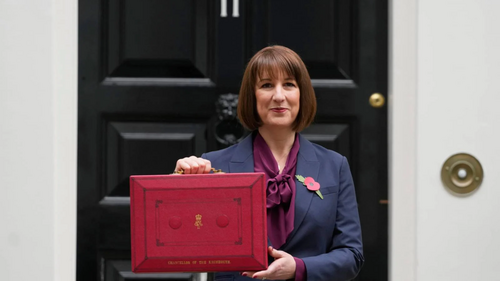The Green Liberal Democrats Autumn Budget Response

This week, Rachel Reeves released the first Labour government’s budget. Overall, there are positives, which we Green Liberal Democrats welcome. However, it is important to look at what the budget omits. Ed Davey and the party have already criticised the lack of focus on social care funding, but the budget's environmental aspirations warrant a closer look.
With the largest tax hike ever announced outside of a recession, the budget signals great ambition and intention towards long-term investment – this could be a pivotal moment for investment in the green economy. We know, as Green Lib Dems that investment in the environment and green technology is a no-brainer for revitalising the economy, a notion supported by climate think tank E3G, which found the green economy expanded by 9% in 2023 as opposed to the rest of the economy growing at 0.1%. The time is now for Labour to act on climate and reap the economic benefits.
From this perspective, there are promising moves such as an allocated budget of £3.4 bn aimed at home insulation, a crucial step towards reducing fuel poverty and consumption, despite it being less than half of the initially promised number in their manifesto. Additionally, the provisions for energy and green technology are promising, with a commitment to GB Energy, increases in windfall tax, incentives for EVs, and investment in innovative technologies such as green hydrogen and carbon capture.
However, some of these moves do not come without apprehension on our behalf. Liberal Democrat, Wera Hobhouse MP, has been challenging the omission of community energy, from the GB Energy plan. Integrating such projects, which garner much cross-party and public support, into their plan would help to ensure energy security and empower communities. Most alarmingly, shares in North Sea Oil companies despite the announcement of the windfall tax rise after a loophole was found that allows oil companies access to 100% of first year capital allowances. Labour’s shallow conceptualisation of climate policy makes it look like an afterthought.
One of the more contentious points is the freeze on fuel duty. Extending a 14-year freeze, which has cost the exchequer approximately £100 billion and may have led to UK carbon emissions being 7% higher a Carbon Brief report found, is seen as a subsidy that contradicts climate goals. Additionally, while short-haul economy flights will only face a modest increase of £2, private jet users will face a 50% tax increase. This is a much needed tax on the wealthy, but fails to fully address aviation’s environmental impact, especially as aviation fuel remains tax-free (Flight Free UK).
The extension of the fuel duty freeze across all vehicles effectively acts as a subsidy for fossil fuels. Although Reeves’ budget boasts about incentives for EV usage and plans for improved train infrastructure, these proposals are undermined by the increase in the bus fare cap from £2 to £3. This fare hike disproportionately affects low-income workers and people with disabilities who depend on public transport. As a result, the policy does little to discourage car use or promote accessible, sustainable transportation options.
Most concerning from our Green Liberal Democrats' perspective are the environmental gaps in this budget. The failure to address considerations for the natural environment, and the vital role it has in climate resilience, is amongst its most damaging aspects. There is no mention of investment into nature restoration, cleaning up water pollution or nature-friendly farming, and in fact, the budget slash on DEFRA and the risk this budget poses to small family-run farms has already been highlighted by Tim Farron MP.
We see the threats of climate and natural degradation as being of equal prominence and demonstrate a limited view of environmental policy from this Labour government and an ignorance of nature-friendly farming could be a key to environmental remediation in the UK.
Furthermore, some critics of carbon capture technologies emphasise the risk of inadvertently giving large polluters a justification for the burning of fossil fuels if their emissions could be ‘reversed’. It also disregards the role that nature restoration has in carbon sequestration whilst also improving soil quality, improving flood defences, and restoring ecosystems. Investment in carbon capture technology coupled with natural land and marine restoration could be the more efficient investment.
In summary, there are positives of this budget, particularly where investment in green technology and insulation is concerned, and it is certainly more climate-forward than its predecessors. However, it falls short on several key fronts, such as ignoring community energy as an empowering solution, raising bus prices on working people and passes up the opportunity for a more holistic approach which intertwines climate and nature - a non-negotiable in our view.
Written by Katharine Ewing, GLD Political Officer
